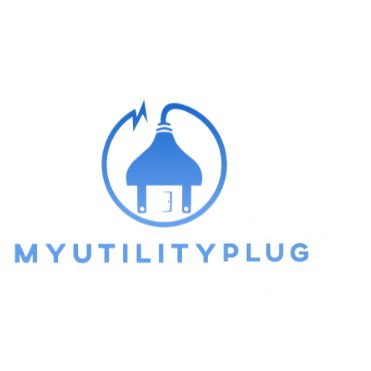Your Trusted Energy Consultation Partner.

Tailored energy solutions for savings and sustainability.
Experience clarity and control with My Utility Plug your trusted advisor for navigating energy choices seamlessly. For homeowners and businesses alike, we provide tailored solutions to meet your unique needs. Whether you’re seeking the best rates or the stability of a fixed plan, My Utility Plug ensures you maximize savings and avoid costly fluctuations. With our expertise, you can make energy choices with confidence and enjoy dependable, budget-friendly results.
Energy Deregulation A Change For The Better. What It Means For You.
These days, energy consumers in many states enjoy the freedom to choose their own provider, a significant shift from how things used to be. For years, both households and businesses were limited to buying electricity from a single utility, often at fixed rates. With the advent of energy deregulation, the market opened up, breaking apart utility monopolies and encouraging competition to drive down costs and improve service quality. Now, in states with competitive energy markets, consumers can explore a variety of providers, flexible rate plans, contract terms, and specialized energy solutions tailored to their needs.
How Energy Deregulation Works
In states with regulated energy markets, a single utility company traditionally handled the entire energy process, from generation to distribution, creating monopolies and leaving customers with limited options. Deregulation changes this by separating the supply of energy from its distribution. While local utilities continue to manage the infrastructure (like power lines and maintenance), multiple suppliers can now compete to provide the actual energy, offering diverse pricing structures, plans, and service options to customers.
In deregulated markets, customers can choose their energy supplier based on their preferred rates, terms, and features, while the local utility remains responsible for delivering electricity, handling outages, and maintaining infrastructure. This setup encourages competition, prompting suppliers to offer better pricing, flexible contracts, and additional perks, ultimately benefiting consumers.
Benefits of Energy Deregulation for Residential Customers
Increased Choice: Residential consumers can select from a variety of energy suppliers, allowing them to choose the plan that best suits their household needs, whether that’s locking in a fixed rate for budget consistency or opting for a variable rate that could offer savings in certain seasons.
Budget Control and Stability: With options to choose fixed-rate plans, residential customers can avoid seasonal price fluctuations and gain predictable monthly energy bills. This can be especially beneficial for budgeting and household planning, providing peace of mind against unexpected rate increases.
Access to Renewable Energy: Many suppliers offer renewable energy options in deregulated markets, giving eco-conscious households the choice to power their homes sustainably. Customers can choose partial or full renewable energy plans, supporting environmental goals while managing their energy costs.
Specialized Products and Services: Deregulation enables suppliers to offer unique plans tailored to different usage patterns. For example, time-of-use plans, where rates are lower during off-peak hours, can help households with flexible schedules reduce their bills by shifting high-energy activities to these times.

What Deregulation Means for Businesses
For Small Businesses: Smaller businesses benefit from the flexibility to choose energy plans that fit their operational patterns and budget constraints. Options like fixed-rate plans allow for predictable monthly expenses, while variable-rate options might offer savings during off-peak seasons. This flexibility helps smaller businesses manage costs and stay competitive.
For Large Businesses: Large businesses often have significant energy demands, and even small rate differences can have a substantial impact on costs. Deregulation allows large companies to negotiate customized contracts, often at lower rates, due to their higher consumption. They can also pursue renewable energy plans to meet corporate sustainability goals or choose flexible rate structures that align with energy-intensive production cycles.
A Brief History of Energy Deregulation
Energy deregulation began with natural gas in the 1970s and extended to electricity markets in the 1990s. The Public Utility Regulatory Policies Act (PURPA) of 1978 opened the door for competition by allowing independent power producers to enter the market. The Energy Policy Act of 1992 further advanced deregulation, giving states the authority to restructure their energy markets. Since then, several states have embraced deregulation, although not all states participate.
The primary goals of deregulation were to break up monopolies, reduce costs, and foster innovation. By introducing competition, deregulation has led to more diverse energy products, including renewable energy options and time-of-use pricing, and encouraged suppliers to improve customer service.
Why Work with a Broker Instead of a Specific Provider
Unbiased Advice: Brokers don’t represent a single provider, which means they can offer objective guidance. They assess options from multiple suppliers to find plans that genuinely match a customer’s needs, rather than promoting any one company’s offerings.
Expert Market Insights: Brokers bring extensive market knowledge, staying informed about rate trends, new products, and regulatory changes. They use this expertise to secure the best rates and terms, helping customers avoid unexpected costs and select plans that align with their usage patterns.
Contract Management and Renewal Tracking: Brokers proactively manage contract renewals to prevent automatic renewals that often come with rate increases. By tracking renewal dates and market conditions, brokers ensure customers stay on competitive plans and avoid unnecessary costs.
Savings Potential: Working with a broker can help unlock savings opportunities, as brokers can negotiate rates based on usage patterns, customer size, and market timing. They can also guide customers interested in transitioning to renewable energy or other cost-effective plans.
Empower Your Energy Choices Today
Navigate Your Energy Options with Confidence. Our personalized consultations ensure the best rates and seamless transitions. Reach out now!
My Utility Plug empowered my energy choices with their expert guidance.
